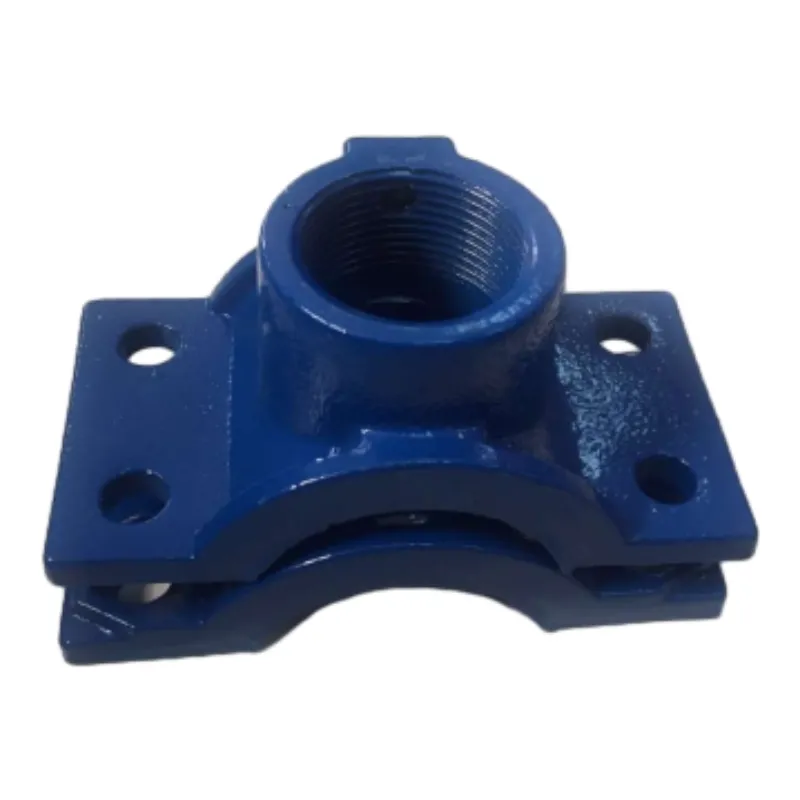hydrant butterfly valve
Understanding Hydrant Butterfly Valves A Crucial Component in Fire Safety
In the realm of fire safety and water management systems, the hydrant butterfly valve stands out as a crucial component that ensures effective water flow and control during emergencies. Understanding the function and importance of these valves can significantly enhance the effectiveness of firefighters and emergency responders.
What is a Hydrant Butterfly Valve?
A hydrant butterfly valve is a type of valve used primarily in water distribution systems, particularly in fire hydrants. It consists of a rotating disc or butterfly that sits within a pipe. This disc rotates around a central axis to open or close the flow of water. When the valve is in the open position, water can flow freely, allowing firefighters to access the necessary volume of water quickly. Conversely, when closed, the valve prevents water from flowing, maintaining system pressure and directing resources where needed.
Importance in Fire Safety
The functionality of hydrant butterfly valves is pivotal during a firefighting operation. When a fire breaks out, every second counts. Firefighters rely on hydrants to supply them with the water they need to extinguish flames effectively. The butterfly valve’s design enables rapid operation, requiring minimal effort to switch between open and closed positions, thereby facilitating swift water access during critical moments.
Moreover, these valves are designed to withstand high pressures, ensuring that they can handle the demands of intense firefighting situations. The robust construction prevents leaks and failures, which is crucial since even a slight reduction in water flow can compromise firefighting efforts.
hydrant butterfly valve

Installation and Maintenance
Proper installation and regular maintenance of hydrant butterfly valves are paramount to ensure they function effectively. Valves should be installed by trained professionals who understand the specific requirements and codes of the local fire safety regulations. Regular inspections are necessary to check for signs of wear and tear, corrosion, or any other issues that may impede performance.
Maintenance often includes cleaning and lubricating the moving parts, checking seals, and ensuring that the valve operates smoothly. If any problems are detected, prompt repairs or replacements are essential to avoid any disruptions during an emergency.
Innovations in Valve Technology
Advancements in technology have led to innovations in valve design, enhancing both efficiency and robustness. Modern hydrant butterfly valves often incorporate materials that are resistant to corrosion and wear, extending their operational lifespan. Automated systems have also been developed, allowing for remote control and monitoring of valve operations, which can enhance the reliability of water supply during emergencies.
Conclusion
In conclusion, hydrant butterfly valves play a fundamental role in fire safety and emergency response systems. Their ability to provide quick and reliable access to water makes them indispensable tools for firefighters. Understanding their function, importance, and the need for proper maintenance can help ensure they remain operational when needed most. In an age where innovation continues to drive improvements in safety technology, staying informed about these essential components can ultimately save lives and protect property. As communities strive to enhance their fire safety measures, the hydrant butterfly valve remains an unsung hero in the fight against fire.
-
The Smarter Choice for Pedestrian AreasNewsJun.30,2025
-
The Gold Standard in Round Drain CoversNewsJun.30,2025
-
The Gold Standard in Manhole Cover SystemsNewsJun.30,2025
-
Superior Drainage Solutions with Premium Gully GratesNewsJun.30,2025
-
Superior Drainage Solutions for Global InfrastructureNewsJun.30,2025
-
Square Manhole Solutions for Modern InfrastructureNewsJun.30,2025
-
Premium Manhole Covers for Modern InfrastructureNewsJun.30,2025
